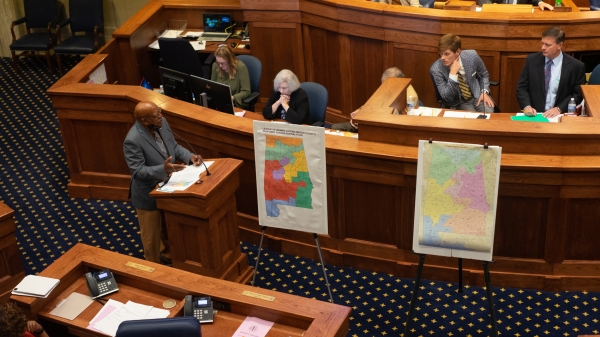By Bill Britt
Alabama Political Reporter
The Office of Governor Robert Bentley wants one more chance to create a powerful agency with big money, loose contracts, and a prying eye into the vast state data network.
Once again, Bentley’s administration is proposing legislation that will create the Office of Information Technology (OIT) as a stand-alone agency, which will absorb the Information Services Division (ISD), that was, until recently, closely guarded by the Department of Finance.
According to its website, “ISD professionals acquire and manage network and telecommunications services for all Executive Branch agencies, departments, boards, commissions, offices, and institutions for the State of Alabama.” In other words, they handle all technology needs from complex networks to the kind of telephones used at the Attorney General’s Office.
During the 2013 Legislative Session, State Sen. Phil Williams (R-Rainbow City) sponsored SB116 and SB117, one to create the position of Secretary of the Office of the Information Technology (OIT), and the other to separate Information Services Division (ISD) from Finance into a stand-alone Agency under OIT.
But the measure to form an OIT Agency failed, ending Bentley’s power grab for the moment.
By making ISD a separate agency under OIT, the Governor would gain power over the cash-rich body and a means to accesses state computers, email, phones and much more. But, during the turmoil of the 2013 Session, Acting Finance Director Bill Newton realized that by removing ISD from his control it would not only cost his department ready cash but also transfer massive power to Bentley’s team. Reportedly, under Newton, funds generated by ISD were used as a carrot or a stick to keep other departments under his thumb. “Make a call to a journalist he’s got your number,” said a former techie. “Want to know what’s in an email, they got that too.”
Bentley covets this power as Chief Magistrate according to administrative insiders.
The 2013 Legislation to remove ISD from Finances died in the basket. But it has been resurrected in 2017 as Bentley, once again, called on his friend Williams to carry SB219 which would make OIT a cabinet level agency, then roll ISD under its umbrella. This would finally place the power of ISD in Bentley’s whip hand.
So, it is that Bentley wants the Legislature to place this vital government-wide service under the OIT operation that nurtured the flawed STAARS accounting software system, the failed eStart debacle, eMap, and phone systems that were costly and redundant. Current OIT has wasted over $70 million in State and Federal tax dollars on a technology solution known as CARES which facilitates Medicaid, CHiPs and other services for the State’s children, disabled and poor.
Now the Governor hopes to convince lawmakers to give them the responsibility of governmentwide IT.
There is more to this story, especially the ingenious ways Bentley’s administration funded OIT.
But, that will be next in the series that shines a light into the dark corners of government waste, suspect deals and a fight for who controls the flow of information.
























































You must be logged in to post a comment Login